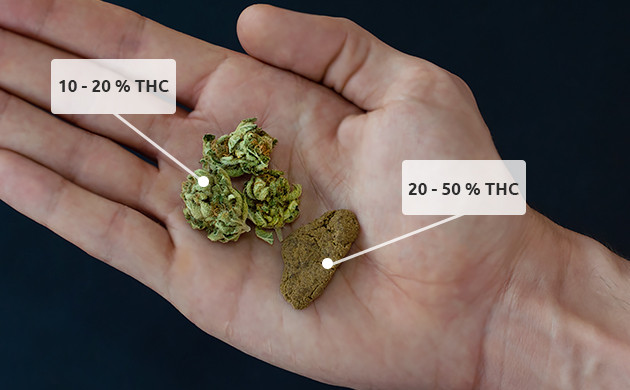
Neuroplasticity and Cannabis: How THC May Rewire Learning Pathways
The human brain is not a static organ. It has the remarkable ability to adapt, reorganize, and form new connections
FREE SHIPPING ON ORDERS OVER $99 | 10 points = $1
In today’s fast-paced world, chronic stress has become almost unavoidable. From work deadlines to digital overload and poor sleep, the human body is constantly bombarded by stressors. While modern medicine offers solutions, more people are turning to natural alternatives — and among the most powerful of these are adaptogenic mushrooms.
These remarkable fungi not only help reduce the impact of stress, but also restore balance in the body, improve resilience, and promote mental clarity. But how exactly do adaptogenic mushrooms work? And why are they gaining attention in the wellness community?
Let’s explore what makes these mushrooms so special and how they can help you manage stress more naturally and effectively.
Before diving into the mushrooms, it’s important to understand the term “adaptogen.”
Adaptogens are natural substances — often herbs or fungi — that help the body adapt to stress and maintain balance, or homeostasis. Rather than stimulating or sedating, adaptogens bring the body back into a state of equilibrium. They support the adrenal glands, which are responsible for producing stress hormones like cortisol, and help regulate the nervous system, energy levels, and immune function.
Adaptogens don’t target one specific symptom — instead, they work holistically to improve the body’s ability to resist stress in all forms: physical, emotional, and environmental.
Adaptogenic mushrooms are a category of functional mushrooms that contain compounds to help the body cope with stress, fatigue, and anxiety. They’ve been used in Traditional Chinese Medicine (TCM) and Ayurvedic practices for thousands of years, and modern science is now backing their benefits.
Some of the most well-known adaptogenic mushrooms include:
Each of these mushrooms contains bioactive compounds like beta-glucans, triterpenes, and polysaccharides, which work synergistically to regulate stress responses and improve resilience.
Chronic stress often leads to overproduction of cortisol, a hormone that can disrupt sleep, weaken the immune system, and promote anxiety. Adaptogenic mushrooms, particularly Reishi and Cordyceps, help regulate cortisol levels and support the adrenal glands.
By balancing these systems, mushrooms help reduce feelings of burnout and improve overall energy without overstimulation.
Adaptogenic mushrooms can have a calming effect on the central nervous system, helping the body shift out of the fight-or-flight mode. Reishi, often referred to as the “mushroom of spiritual potency,” is especially effective at promoting a sense of inner calm and supporting parasympathetic nervous activity (rest and digest mode).
Stress and poor sleep often go hand in hand. Reishi and Lion’s Mane both help promote deeper, more restorative sleep by calming the mind and balancing neurotransmitter activity. Reishi is also believed to enhance natural melatonin production and support circadian rhythm alignment.
Chronic stress affects not just the body, but also the brain. Lion’s Mane mushroom supports nerve growth factor (NGF) production, which enhances brain plasticity and cognitive function. While not a traditional adaptogen, its mild calming and focus-enhancing effects help manage mental stress and brain fog.
Stress weakens the immune system, making you more vulnerable to illness. Adaptogenic mushrooms like Chaga, Maitake, and Shiitake contain high levels of antioxidants and immune-modulating compounds that help the body defend itself, even during high-stress periods.
Adaptogenic mushrooms are available in various convenient forms:
For optimal results, consistency matters. Adaptogens are not a one-time fix; they work best when taken daily over a few weeks or months.
Adaptogenic mushrooms are generally well-tolerated. However, individuals with mushroom allergies or on certain medications (especially immunosuppressants or blood thinners) should consult with a healthcare provider before use.
Start with small doses, especially if you’re new to mushroom supplements, and observe how your body responds.
In a world where stress is everywhere, adaptogenic mushrooms offer a natural, sustainable path to balance. Whether you’re feeling burnt out, overwhelmed, or simply looking to enhance your resilience, these ancient fungi may be the powerful allies your body and mind need.
They don’t just treat symptoms — they strengthen your body’s own ability to cope, adapt, and thrive.
With growing scientific research and centuries of traditional use backing them, adaptogenic mushrooms are more than a trend — they’re a lifestyle upgrade rooted in nature.

The human brain is not a static organ. It has the remarkable ability to adapt, reorganize, and form new connections

In our fast-paced world, many people accumulate what’s known as sleep debt—a deficit that builds when you consistently sleep fewer